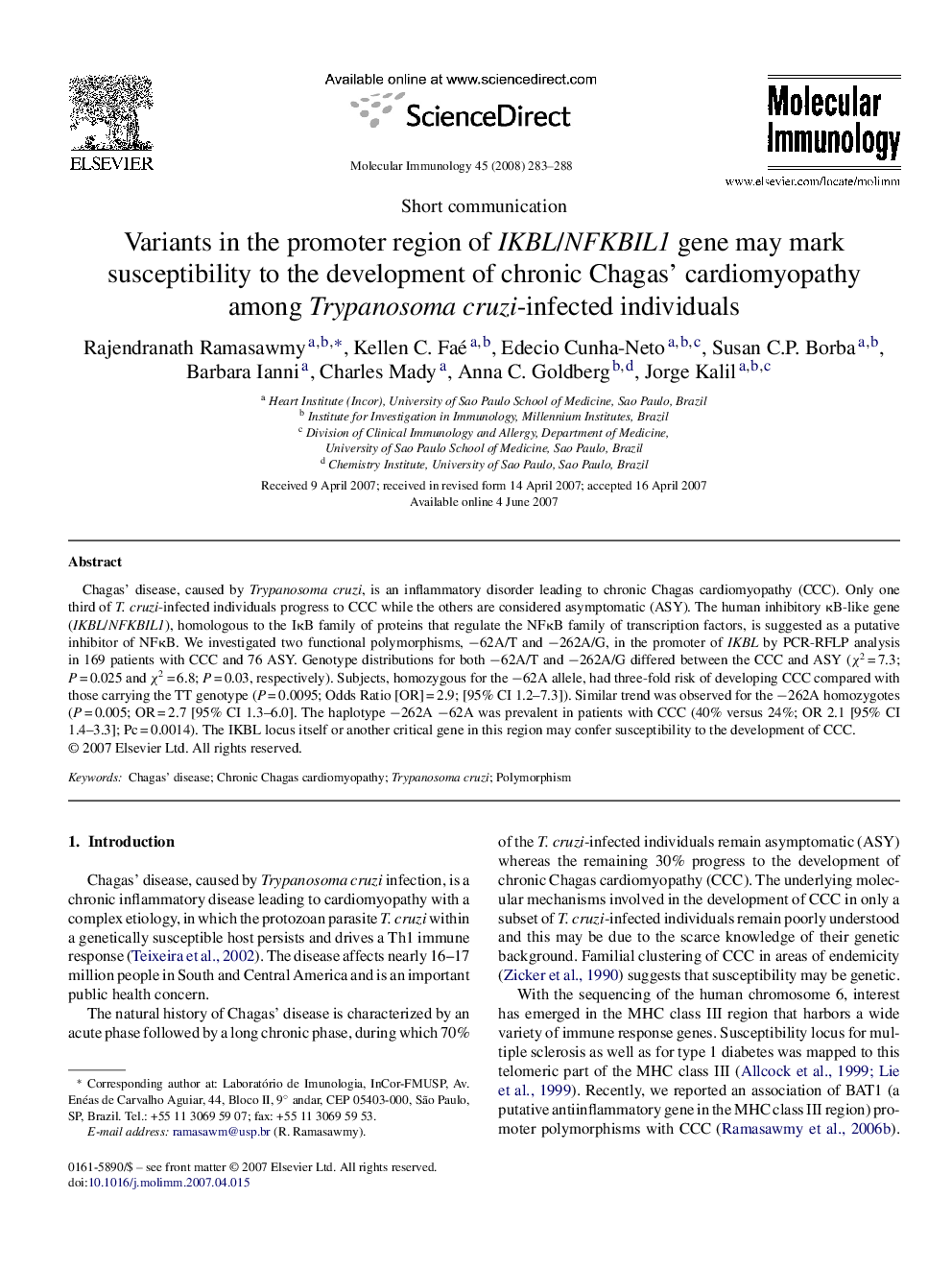| Article ID | Journal | Published Year | Pages | File Type |
|---|---|---|---|---|
| 5918365 | Molecular Immunology | 2008 | 6 Pages |
Abstract
Chagas' disease, caused by Trypanosoma cruzi, is an inflammatory disorder leading to chronic Chagas cardiomyopathy (CCC). Only one third of T. cruzi-infected individuals progress to CCC while the others are considered asymptomatic (ASY). The human inhibitory κB-like gene (IKBL/NFKBIL1), homologous to the IκB family of proteins that regulate the NFκB family of transcription factors, is suggested as a putative inhibitor of NFκB. We investigated two functional polymorphisms, â62A/T and â262A/G, in the promoter of IKBL by PCR-RFLP analysis in 169 patients with CCC and 76 ASY. Genotype distributions for both â62A/T and â262A/G differed between the CCC and ASY (Ï2 = 7.3; P = 0.025 and Ï2 = 6.8; P = 0.03, respectively). Subjects, homozygous for the â62A allele, had three-fold risk of developing CCC compared with those carrying the TT genotype (P = 0.0095; Odds Ratio [OR] = 2.9; [95% CI 1.2-7.3]). Similar trend was observed for the â262A homozygotes (P = 0.005; OR = 2.7 [95% CI 1.3-6.0]. The haplotype â262A â62A was prevalent in patients with CCC (40% versus 24%; OR 2.1 [95% CI 1.4-3.3]; Pc = 0.0014). The IKBL locus itself or another critical gene in this region may confer susceptibility to the development of CCC.
Related Topics
Life Sciences
Biochemistry, Genetics and Molecular Biology
Molecular Biology
Authors
Rajendranath Ramasawmy, Kellen C. Faé, Edecio Cunha-Neto, Susan C.P. Borba, Barbara Ianni, Charles Mady, Anna C. Goldberg, Jorge Kalil,
